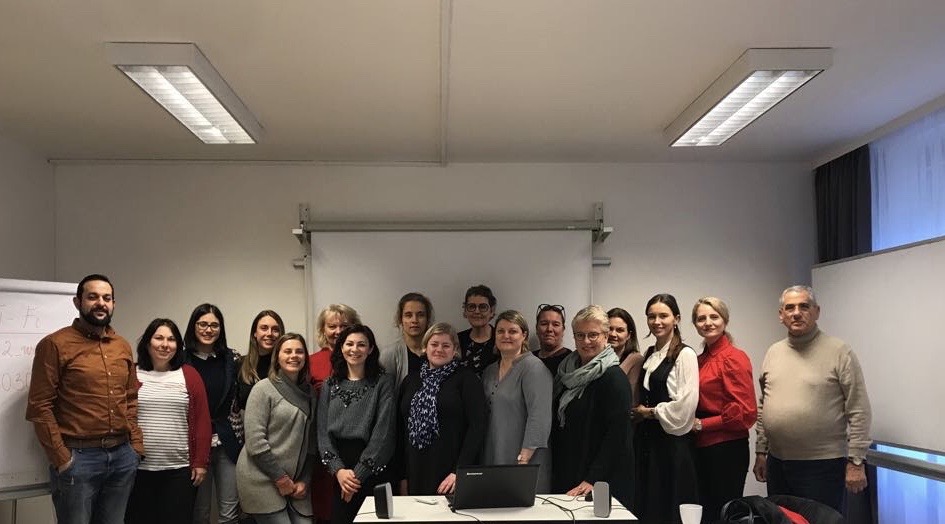Projects to improve the quality of education by strengthening inclusion were carried out in Prague’s kindergartens and primary schools. The aim of our evaluation was to assess the benefits of inclusive activities and to obtain examples of the most significant changes that have occurred in pupils, teachers or parents.
Inclusive activities:
- bilingual assistants
- tutoring
- Czech language courses
- teacher internships
The impact of the interventions has been positive
According to the testimonies of teachers and parents. the interventions have helped create a more welcoming and safer environment at school. Such an environment then led to children and pupils were more quickly and actively engaged in learning, integrated into the classroom more easily and helped children to cope better with the demands of schools and nurseries.
Teachers and parents of children with OMJ reported the positive impact of working with children with OMJ on others from their environment, such as:
- easing the burden on teachers,
- transfer of knowledge and experience in the family with OMJ, both ways: child <-> relative,
- development of foreign language in pupils without OMJ,
- facilitating and improving communication between the school and parents of children with OMJ, increasing trust,
- development of activities for children with OMJ beyond the scope of supported projects, e.g. summer programs, and a higher willingness of families with OMJ to participate,
- Increasing the capacity to obtain information about the education of children with OMJ and the self-development of bilingual assistants/teachers.
Stories of inclusion of specific children with OMJ
The evaluation report includes individual case studies from a selected sample of schools. The study focuses on the benefits of the individual interventions primarily for pupils with OMJ and their parents, and secondarily for head teachers and teachers of kindergartens and primary schools, as well as classmates of pupils with OMJ.
From Czech opponent to reader in a year
OMJ: English
support in primary school: bilingual assistant in primary school
The girl comes from a Czech-Argentine family that communicates mainly in English. When she first came to school, her knowledge of the Czech language was rather passive. “She understands Czech, but she didn’t want to use it. When we started working together, she was looking for excuses not to do anything in Czech.“The little girl also had trouble keeping her attention and working independently. “When I started to work with her, I had to teach her a lot of things, how to work, to get to a result, she couldn’t keep her attention, 10 minutes was enough and she was already tired. I thought after a month, two months, it just wouldn’t work.“
The girl received intensive support from a bilingual assistant, which initially led to the girl’s reluctance to work independently without an assistant. Over time, however, she gained more confidence and began to improve her learning until she was almost completely independent. Currently, the girl is thriving in language and learning. “After the year we have been working together, it turns out that she is more confident, she is not so afraid of the language anymore, her mother also takes Czech lessons, so they talk in Czech and she enjoys it. And when she chooses books, she often reaches for a Czech book herself, I feel a great progress there.”
More case studies, which include baseline, support modality and end of follow-up status, can be found here.
What the interventions have changed in schools
Has the classroom climate changed after the interventions? How did the teachers’ competences change after the internships? And have the academic results of children with OMJ improved?
The main findings of the evaluation and the relevant literature search can be read here Incl. recommendations for systemic and methodological support for children with OMJ. The full final evaluation report includes case studies. Our evaluators assessed the benefits of the interventions in a sample of 9 schools – 3 kindergartens and 6 primary schools – a total of 15 group interviews with teachers and parents of pupils with a different mother tongue.
Impact activities with a focus on pupils with a different mother tongue (OMJ) within the specific objective 4.2 Improving the quality of education by strengthening inclusion in a multicultural society OP PPR under call no. 54 was evaluated by SCHOLA EMPIRICA z.s. in cooperation with InStrategy Consulting, s.r.o. Zhe supplier of the project was the Magistrate of the Capital City of Prague. of the City of Prague. The evaluation activities ran from autumn 2020 to February 2022.


